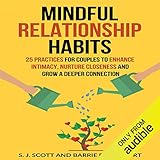Have you ever said something in the heat of the moment that you later regretted? Or maybe you’ve found yourself constantly misinterpreting what others are saying, leading to misunderstandings and frustration. We’ve all been there. Communication, while seemingly simple, can often be a minefield of misinterpretations and emotional landmines. That’s where mindful communication comes in. It’s about transforming the way we speak and listen to foster deeper connections and, ultimately, enhance our emotional well-being.
Understanding Mindful Communication
Mindful communication is more than just carefully choosing your words; it’s a holistic approach to interacting with ourselves and others. It’s about being fully present in the moment, paying attention to our own emotions and those of the person we’re communicating with, and choosing our words and actions with intention and kindness. It’s about cultivating empathy, active listening, and a genuine desire to understand rather than judge.
The Benefits of Mindful Communication for Emotional Well-being
The benefits of practicing mindful communication extend far beyond clearer conversations. Here’s how it can positively impact your emotional well-being:
Reduced Stress and Conflict
Mindful communication encourages us to respond, rather than react, to situations. By pausing before we speak, we create space for ourselves to process our emotions and choose our words thoughtfully. This mindful approach can dramatically reduce misunderstandings and conflicts, leading to more peaceful interactions and a calmer inner state.
Deeper Connections
When we communicate mindfully, we create a safe space for vulnerability and authenticity. This openness strengthens our bonds with others, creating deeper, more meaningful relationships built on trust and understanding. These strong connections are essential for emotional support and overall well-being.
Improved Self-Awareness
Mindful communication requires us to turn inward and examine our own thoughts, feelings, and motivations. This increased self-awareness helps us understand the root of our emotions and communicate our needs more effectively. As we better understand ourselves, we can navigate our emotions more skillfully and build stronger resilience against stress.
Increased Empathy and Compassion
At its core, mindful communication is rooted in empathy. By actively listening and seeking to understand others’ perspectives, we cultivate compassion and understanding. This shift towards empathy not only strengthens our relationships but also fosters a greater sense of connection and kindness, both towards ourselves and others.
Cultivating Mindful Communication
Incorporating mindful communication into your daily life doesn’t require a complete personality overhaul. Here are some practical strategies to get you started:
Practice Active Listening
Active listening involves fully focusing on the speaker, paying attention not only to their words but also to their body language and tone of voice. Resist the urge to interrupt or formulate your response while they’re speaking. Instead, strive to genuinely understand their perspective and acknowledge their feelings.
Be Present in the Moment
In our fast-paced world, it’s easy to let our minds wander during conversations. However, being fully present is crucial for mindful communication. Minimize distractions, put away your phone, and give the speaker your undivided attention.
Choose Your Words Carefully
Words hold immense power. Before you speak, pause and consider the impact of your words. Strive to communicate with kindness, clarity, and respect, even when expressing disagreement. Remember, the goal is to foster understanding, not to win an argument.
Pay Attention to Non-Verbal Cues
Communication extends beyond words. Our body language, facial expressions, and tone of voice convey volumes. Be mindful of your non-verbal cues and ensure they align with your intended message.
Practice, Practice, Practice
Like any skill, mastering mindful communication requires practice. Start by incorporating these strategies into your daily interactions, gradually increasing the awareness and intention you bring to your communication.
 Mindful Communication for Emotional Well-being
Mindful Communication for Emotional Well-being
Mindful Communication: A Journey Towards Emotional Well-being
Mindful communication isn’t about striving for perfection; it’s about progress. It’s a continuous journey of self-discovery, empathy, and compassionate connection. By embracing mindful communication, we can transform our relationships, reduce stress, and cultivate a deeper sense of emotional well-being.
Remember, every interaction is an opportunity for growth. As you continue on this journey, celebrate your successes and approach challenges as learning experiences.
For further exploration on incorporating mindfulness into your life, you can read more about the role of meditation in promoting family wellness and the future of mindful communication in parenting practices.
What are your experiences with mindful communication? How has it impacted your emotional well-being? Share your thoughts and insights in the comments below!
- Chapman, Susan Gillis (Author)
- English (Publication Language)
- Sofer, Oren Jay (Author)
- English (Publication Language)
- Shafir MA CCC, Rebecca Z (Author)
- English (Publication Language)
- Puiman, Rosalie (Author)
- English (Publication Language)
- Rosenberg PhD, Marshall B. (Author)
- English (Publication Language)
- Ahmad, Dr Bilal (Author)
- English (Publication Language)
- Audible Audiobook
- Barrie Davenport (Author) - Amy Barron Smolinski (Narrator)
- Tatkin, Levine (Author)
- English (Publication Language)
- Amazon Kindle Edition
- Bodhi Path Press (Author)
- Chapman, Rachael L (Author)
- English (Publication Language)










